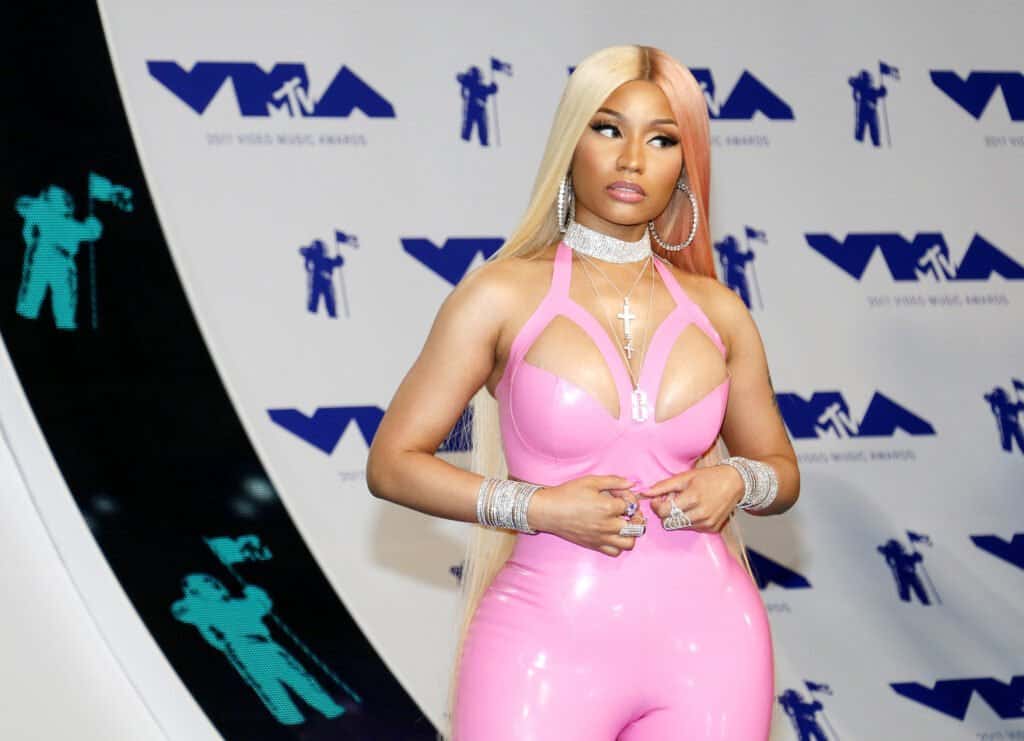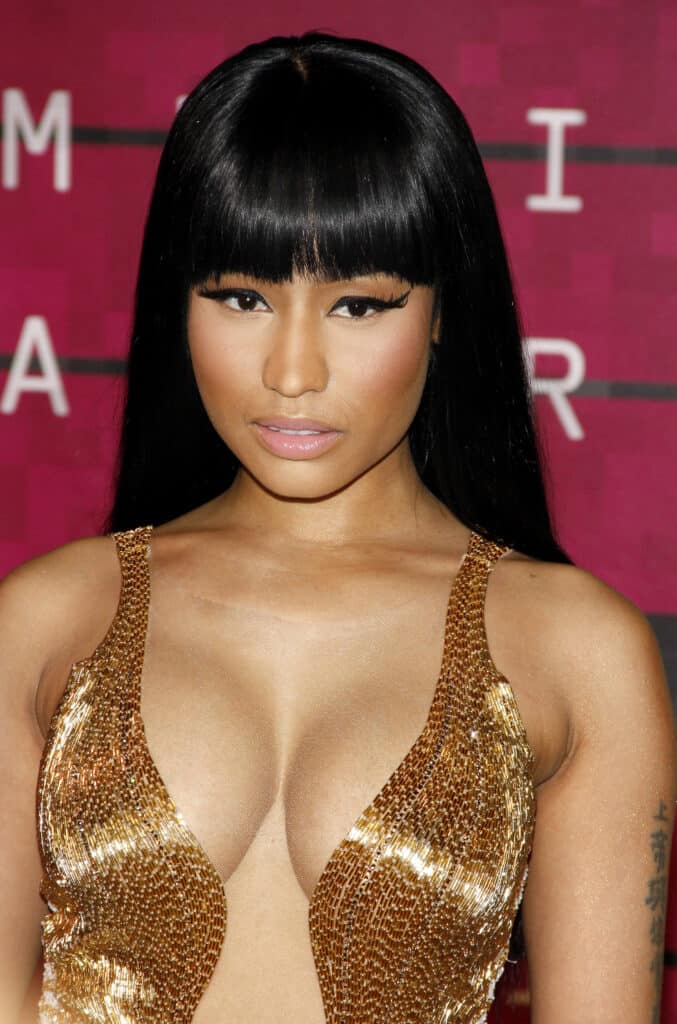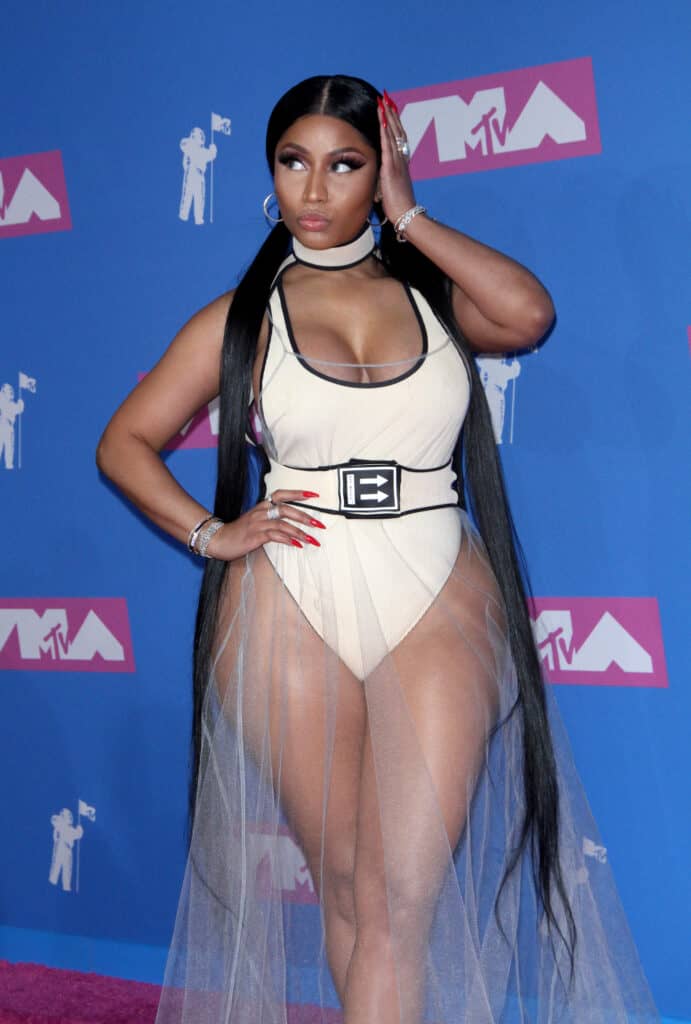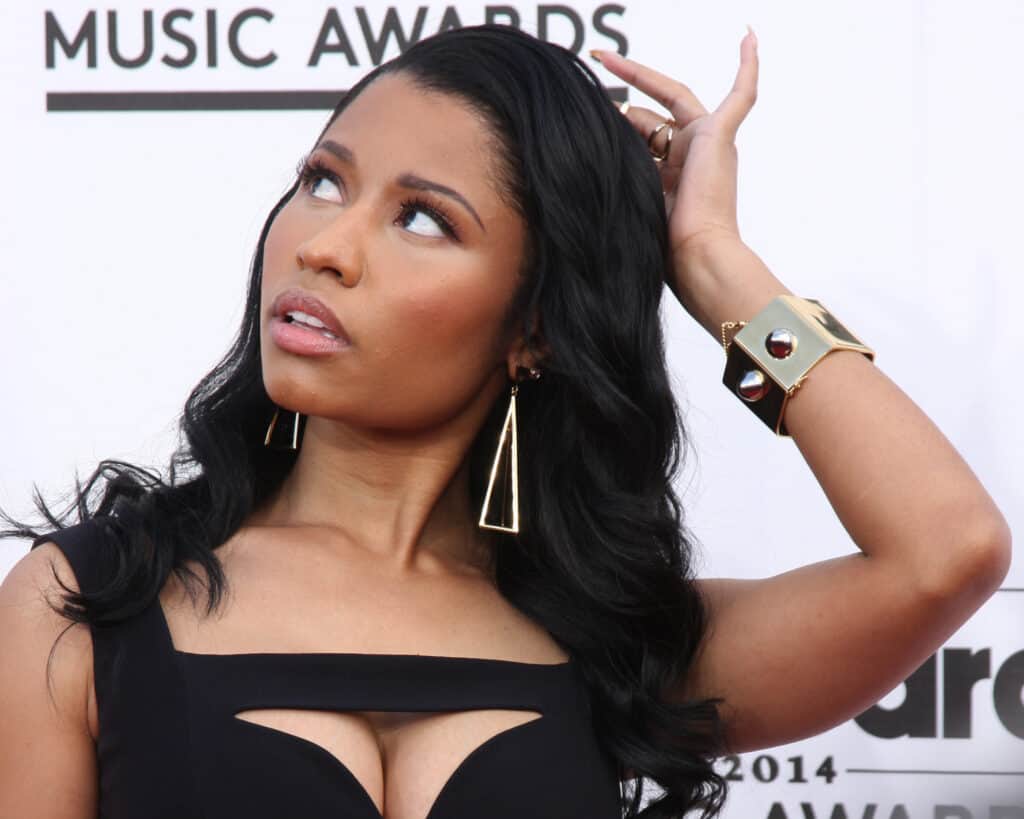Nicki Minaj frequently embraces the Japanese culture. The American-based singer is of a mixed ethnicity, but does she have any Japanese heritage?
Nicki Minaj may be part Japanese. The majority of her ethnic makeup is African and Indian, but there are rumors that she has Japanese ancestors.

Nicki’s Mixed Ethnicity
Nicki was born in Trinidad and Tobago to her Afro-Trinidadian Mother and Indo-Trinidadian Father. Nicki embraces her Indian roots; she enjoys chicken curry and donates to support an Indian village.
Some websites claim that Nicki’s great-grandfather is Japanese, but these reports seem unverified. Nicki herself did mention her possibly Japanese great-grandfather in a vague tweet:
Although Nicki says that her great-grandfather is Japanese, it is unclear if she is joking. She sarcastically claims that she will tweet in the Japanese language for a week, so her claim about her great-grandfather may also be an exaggeration.
Nicki Embraces Japanese Culture
Whether Nicki has Japanese roots or not, the singer clearly adores Japanese style and culture. Nicki expressed that she is a “big fan” of Japanese anime and wanted to pay homage to the culture in her art.

Nicki frequently wears outfits that emulate Japanese styles. For the 2017 Met Gala she donned a black and red Kimono-inspired dress.
Nicki also incorporates Japanese words and phrases into her raps. In her 2009 song “Mind on My Money” she called herself the “ninja Harajuku barbie.”
Japanese Fans Love Nicki
It turns out that Japan loves Nicki Minaj back. In 2012 she made her Japanese concert debut to a room full of excited fans in Tokyo.
Nicki also met some of her Japanese fans during her first trip to Japan. She posted that the Japanese fans had “energy on a trillion” and beat her other fans from around the world with their unparalleled excitement.
Nicki became a part of Japanese culture when she appeared on the cover of Japanese Vogue in 2018. The singer is regarded as a fashion icon in Japan and received praise for her stylish photos in the magazine.

Some Japanese fans even translated Nicki’s music into their language. The YouTube duo Cream posted a cover of Nicki’s song “Super Bass” and turned the raps into Japanese lyrics.
Nicki may have inspired a Japanese rapper as well. Fans compare the hip-hop artist Daoko to Nicki and say that she is like a Japanese version of the rapper in her style and music.
Nicki Minaj Faces Criticism for Cultural Appropriation
Although Nicki clearly loves Japanese culture, she has run into some criticism for her use of other cultures in her performances. Fans often disagree about whether her adoption of other cultures is respectful or harmful.
For example, Nicki’s 2018 performance of “Chun-Li” on Saturday Night Live drew mixed reviews. Viewers disagreed about the political correctness of her performance.
One reviewer explained that the issue is Nicki’s blend of Asian cultures. The single performance had a Japanese kimono-inspired dress, Chinese bodysuit, and Japanese body armor.
Another problem with the performance is Nicki’s sexualization of traditional Asian outfits. Other fans came to her defense, though, and explained that Nicki was simply dressing up as the Chinese video game character Chun-Li.
One of Nicki’s other attempts to pay tribute to Asian culture came under fire in 2010. Nicki said the video for “Check It Out” would be an homage to the Japanese culture and anime she says she adores, as mentioned earlier.
However, something was clearly lost in translation. The final video features Korean writing and a spoken introduction in Korean, not Japanese.

Nicki Minaj also faced backlash for wearing chopsticks in her hair. The singer has put chopsticks in her buns since early in her career, and even rapped about it in her 2007 song “Sticks in my Bun.”
However, Nicki did not know the cultural significance behind the chopsticks in her hair. She crossed them into an X shape, which is considered disrespectful in Japanese culture.
Nicki has not faced backlash for any cultural appropriation in recent years, so perhaps the star decided to turn her art away from the controversial matter of culture. She still loves Japan, though, and may even be part Japanese herself if the rumors are true.